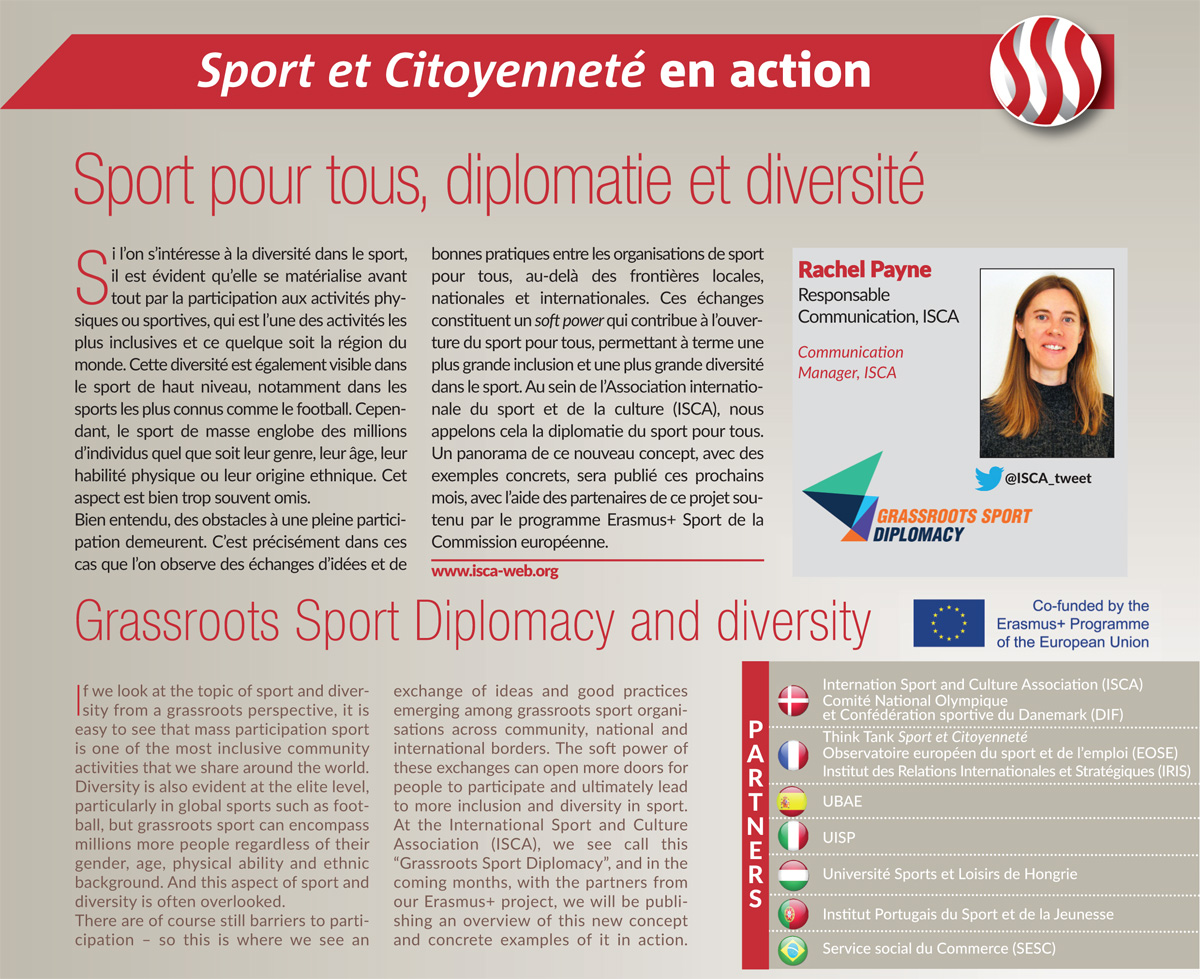Grassroots Sport Diplomacy is crucial to ensuring diversity in sport
Article originally published in Sport and Citizenship journal

If we look at the topic of sport and diversity from a grassroots perspective, it is easy to see that mass participation sport is one of the most inclusive community activities that we share around the world.
Diversity is also evident at the elite level, particularly in global sports such as football, but grassroots sport can encompass millions more people regardless of their gender, age, physical ability and ethnic background. And this aspect of sport and diversity is often overlooked.
There are of course still barriers to participation – so this is where we see an exchange of ideas and good practices emerging among grassroots sport organisations across community, national and international borders. The soft power of these exchanges can open more doors for people to participate and ultimately lead to more inclusion and diversity in sport.
At the International Sport and Culture Association, we call this Grassroots Sport Diplomacy, and in the coming months, with the partners from our Erasmus+ project, we will be publishing an overview of this new concept and concrete examples of it in action.
Sport and Citizenship is a partner in the project, along with EOSE, the French Institute for International and Strategic Studies (IRIS), the National Olympic Committee and Sport Confederation of Denmark, UBAE, UISP, the National School, University and Leisure Sport Federation in Hungary, the Portuguese Institute for Sport and Youth, and the Social Service of Commerce (SESC) from Brazil.
By Rachel Payne, ISCA
